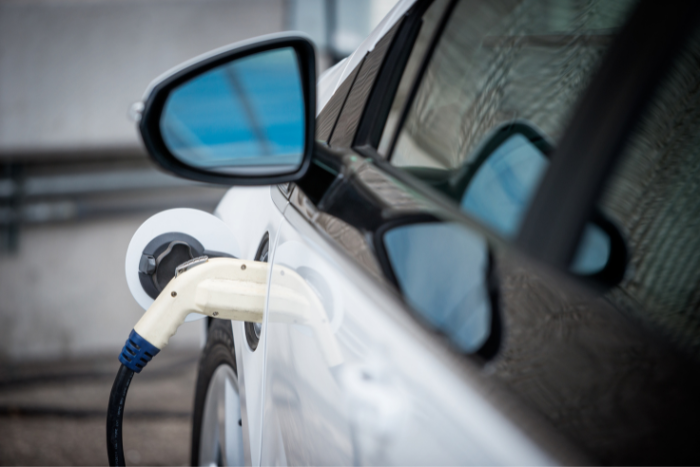Toyota launched a first-of-its-kind pilot project flex fuel-strong hybrid electric vehicle (FFV-SHEV) in India. The car, Toyota Corolla Altis Hybrid, can run on 100% ethanol and possesses a flex-fuel engine and an electric powertrain. This setup extends the dual advantages of higher ethanol use and greater fuel efficiency, as it can run in its EV mode for a good amount of time, while the engine stands shut off. The flex-fuel combination is stored in the same tank of fuel and is used by the engine as a blended fuel, unlike how CNG fuel systems store petrol and CNG in separate tanks and are used separately by the engine.
Using ethanol—a complex derivative of biomass left by agricultural feedstocks such as corn, sugarcane, hemp (bhang), potato, rice, etc.—significantly lowers harmful pollutants such as carbon monoxide, sulphur, and carbon and nitrogen oxides. India is the fifth-largest manufacturer of ethanol following the US, Brazil, the European Union and China and the country has advanced the target date for achieving 20% ethanol-blending in petrol by five years to 2025.
High living costs in UK discouraging switch to cleaner vehicles
The rising cost of living in the UK is keeping drivers away from switching to a cleaner car, reported the Guardian. According to the report, one in seven drivers want an EV as their next car and one in three want a hybrid model. However, rising inflation, energy bills and higher remortgage payments have halted the switch to a new, cleaner vehicle. The report noted a growing preference for cleaner vehicles and said that a record 14% of drivers say their next car will be electric, up from 10% last year and just 3% in 2018 and a further 29% said they intended to switch to a hybrid vehicle.
But as a result of rising costs, the proportion of drivers who now do not know when they will go electric has increased from 36% to 42% year on year. Nevertheless, it was found that the popularity of petrol vehicles is dropping with just 41% of drivers likely to choose one when they get their next car, down from 45% last year and 52% in 2018.
New tech paves way for safer and improved batteries
Researchers from Tohoku University, Japan created a hybrid electrolyte that could provide a safer polymeric solid electrolyte for lithium-ion batteries. Lithium-ion batteries (LIBs) are one of the most used batteries that support smartphones and EVs. Due to their voltage resistance and ionic conductivity, organic electrolytes such as liquid ethylene carbonate (EC) and their gels have been usually used as the Li-ion electrolyte. However, as the liquids and gels are flammable, switching to safer polymeric solid electrolytes is preferable.
The polymeric solid electrolyte not only shows high performance as an electrolyte, but is also expected to be effective in deterring the formation of Li dendritic crystals which can cause ignition. While using lithium ion in small single batteries for cell phones and laptops has been mostly safe, larger ones used in bunches in cars and buses have caught some fires. If the new solid electrolyte can scale up for manufacturing at low cost and offer a much safer lithium ion battery, it would significantly improve the prospects of the electric mobility and information technology industry.
European parliament members raise concerns of geo-strategic dependency stemming from the e-mobility shift
Fifty Members of the European Parliament (MEPs), all from the EPP group, have raised concerns over supply-chain bottlenecks and import dependency arising from the bloc’s plans to shift to shift to electric mobility. In their written submission to the European Parliament, the MEPs cited an April 2022 study conducted by the Belgian university KU Leuven to stress that unless new investments support domestic mines and refineries with urgency, raw materials lithium, nickel, cobalt will breed new dependencies. Similar import dependencies have also been flagged for rare earth metals dysprosium, neodymium and praseodymium until adequate recycling capacities are set up. “The study concludes that bottlenecks are likely to develop for these raw materials and for copper without an increase in global mining investment, globally at least until 2030, and for some of these raw materials also until 2040.”
“How will the geostrategic dependency of the EU change as a result of the ban on the internal combustion engine and the switch to electro mobility only?” the MEPs ask in their submission.
About The Author
You may also like
New report shows ways to build an efficient e-bus ecosystem in India
Corporate watchdog accuses Toyota of misleading marketing, greenwashing
Electrifying India’s Roads: Financing EVs – Challenges, Progress and the Road Ahead
Five lithium and cobalt mines identified in overseas exploration
India approves $7 billion plan for 10,000 electric buses in 169 cities in next 10 years


